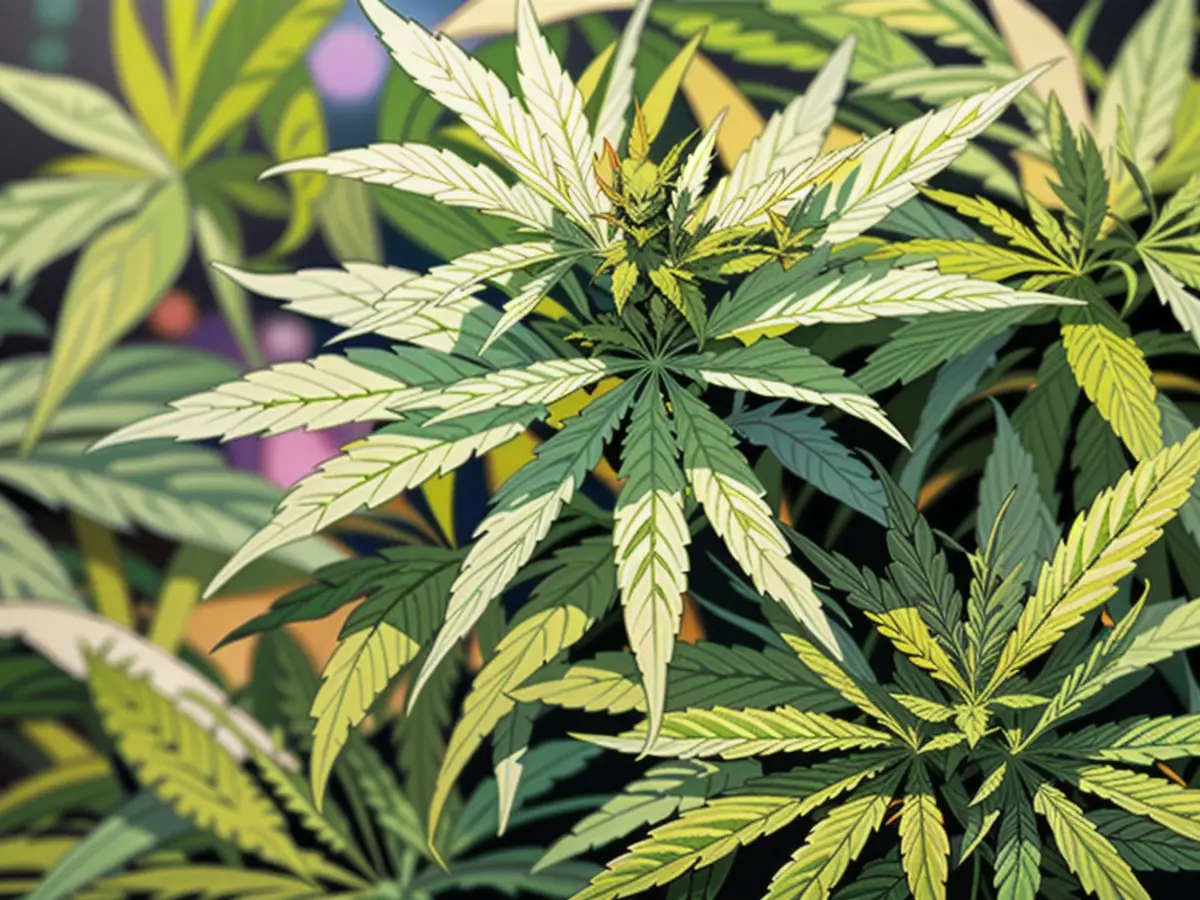Well-being - More obstacles may await cannabis growers' organizations.
Plans for more stringent regulations in legal cannabis growth clubs are garnering backlash from authorities and potential participants. The guidelines could potentially hinder "effectively addressing health and youth prevention and competing against the black market," asserted the German Federal Association of Cannabis Cultivation Associations in a statement to the German Parliament.
The cannabis industry asserts that these additional costs would make it harder for new productions to emerge. This would ultimately result in a shortage of legal cannabis and favor the black market.
On Monday, the Parliament's Health Committee will discuss potential amendments to the law for partial legalization of cannabis, which has been in effect since April, in an expert hearing. These changes focus on strengthening regulations for non-commercial "cultivation associations" with up to 500 members, where adults over 18 can cultivate cannabis together and share it among themselves for personal use - limited to 50 grams per member per month.
These proposed alterations aim to prevent the creation of large plantations. Permits could be denied if cultivation areas or greenhouses are housed in "structural complexes" or close to those of other associations.
"The non-commercial nature of self-cultivation" would be secured through a ban on engaging commercial providers with multiple services. At the request of the states, controls would not occur annually, but instead in a more flexible "regular" manner. The German Parliament is anticipated to accept these changes on Thursday.
The German Hemp Association voiced their concerns in a statement, asserting that some of these proposals could result in "fewer cannabis clubs being founded" and thereby keeping the black market larger. The most significant costs in establishing a club revolve around investments in technology and equipment for indoor cultivation for 500 regular consumers.
Expert estimates suggest that over 100,000 euros are necessary for technology and other equipment for indoor cultivation for 500 regular consumers. It's more financially attractive to rent or lease a fully equipped cultivation room. Without the option of bundled offers, clubs would need to negotiate and finance contracts with service providers independently.
The German Federal Association of Cannabis Cultivation Associations commends the objective of safeguarding clubs against commercial enterprises and banning large-scale cultivation areas. However, these proposed modifications might pose unfavorable impacts on non-commercial cannabis cultivation clubs. The industry association Cannabis Industry points out that smaller clubs may intend to join together on a shared plot. The search for locations already incurs considerable difficulties due to distance regulations.
Read also:
- The German Federal Association of Cannabis Cultivation Associations is worried that stricter regulations for cultivation associations could hinder their ability to effectively address health and youth prevention, potentially advantageous to the black market.
- Berlín's Parliament's Health Committee will discuss potential amendments to the law for partial cannabis legalization, focusing on strengthening regulations for non-commercial cultivation associations, limiting their size and location.
- Inoderhand, these proposed changes aim to prevent the creation of large plantations and ban commercial providers from supplying services to these associations.
- The German Hemp Association warns that some of these proposals may reduce the number of cannabis clubs, thereby maintaining the black market's prevalence, due to the considerable financial investments needed to establish a club, managing technology and equipment for indoor cultivation.
- The Cannabis Industry Association highlights that smaller clubs may opt to collaborate on a shared plot, encountering challenges due to distance regulations and struggling to secure suitable locations for cultivation.
- In regards to this situation, the Federal Association of Cannabis Cultivation Associations supports the goal of protecting clubs from commercial enterprises and prohibiting large-scale cultivation areas, but they express concerns that these reforms could negatively impact non-commercial cannabis cultivation clubs.








